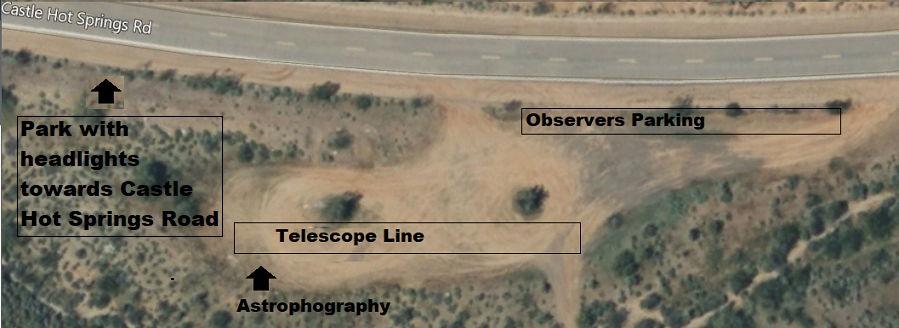WVAC Star Party Etiquette
1) Use red lights, pointed down and sparingly.
White light will destroy a stargazer’s hard-earned night vision, which can take 15 or more minutes to develop. Even red lights can damage your night vision, so point them down when in use, and try to use them sparingly.
2) Warn others if white light must be used.
It’s okay to use a flashlight if you drop something, but keep the light focused and shout out a warning to your fellow stargazers.
3) Don’t take flash photography after sunset.
This seems obvious, but is easy to forget when you want to take a proud group shot or the perfect selfie. Learn nighttime photography, or take a group photo before sunset. Set your smart phone’s flash to “off” if you plan to use it.
4) Park away from the observing site.
Headlights are the worst, but even backup lights or interior dome lights can quickly erode night vision. If you have a telescope or other heavy gear, it’s okay to park near the viewing site, but orient your headlights towards the road, away from observers when you arrive, park and depart.
Astrophotographers using computers please try and park at the south end so the light from your monitors does not interfere with other astronomers.
If you’re joining us to only observe please park away from those who have telescopes. See Diagram:

5) Watch where you walk.
It’s easy to stumble in the darkness, especially when power cords or other wires are spread across the ground. If you bring a telescope, consider using reflective tape on or around your telescope, to aid guests who are navigating the darkness.
6) Don’t run.
You might trip over a wire, run into a fellow stargazer, or create enough turbulent ground to ruin a prized long-exposure image. Take your time as you navigate the observation site. Remind children to do the same.
7) Ask before you touch.
Astronomy equipment can be expensive and precisely positioned; you don’t want to accidentally damage someone’s telescope or observation. Often, if you ask, people are happy to let you enjoy a view through their telescope. A reminder: Never touch any glass optical surface.
8) Keep food, drink and cigarette smoke away from equipment.
Walking around with food and beverage in the dark is not advised, and certainly not recommended near expensive telescopes. Find a safe place to sit and enjoy yourself. Event organizers may designate special areas for smoking; if not, ensure you are downwind from observers.
9) Remember: sound travels.
In calm, open spaces, noises tend to carry. Learn the party’s rules regarding music. Avoid conversations that could be offensive to children or other party guests… they can likely hear you, even if you are speaking in a hushed tone.
10) Ask questions!
Don’t feel shy about your lack of experience. Even professional astronomers will tell you: There’s always someone smarter than you about something. Learning and expanding your knowledge is something to be proud of. Most amateur astronomers appreciate the opportunity to share, teach and collaborate.